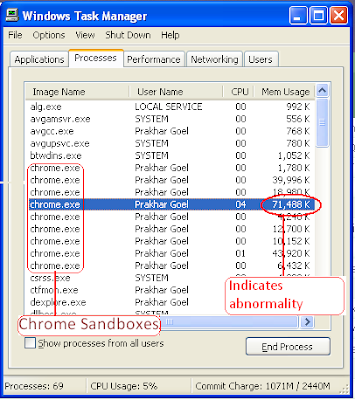
Reality is wilder than fiction. If you are reading it for the first time: Welcome. And if you already knew this: Welcome back.
The article below is not a story out of Isaac Asimov's Science fiction or a plot by Wachowski brothers. Its real and the people in Princeton University are working on it.
The Global Consciousness Program (GCP) is a research that collective feelings and emotions create resonance. This resonance has the power to change the course of universe! Sounds weird? Read on…
When groups of people produce the same feelings and emotions, a resonance occurs. Like the 9/11 incident, Barack Obama's oath, Princess Diana's death etc. At these occasions millions of people experienced same emotions. Even at midnight of a New Year people have similar emotions. Is it possible then these subtle emotions when produced in sheer volume have an impact on the universe? Can the course of Universe be molded if a reverberation of emotions occurs?
GCP is a research led by Princeton University which tries to unravel this supernatural secret. It uses a network of computers spread across the globe to produce some random data and then try to establish a pattern in that data. They found the pattern. The weird thing is that this pattern is disturbed from the normalized line at occasions like 9/11, Tsunami in 2005, Chechen hostage tragedy in 2002, etc. This shows that the subtle but powerful resonance of human emotions has the power to affect the reality axis. The coherent group consciousness is the core of GCP program.
Lectures on GCP
first
So what is GCP?

The core of GCP as told above, lies in group consciousness. The research in GCP records the effect of events that stimulate us to join as a world-wide consciousness, like the New Year eve, when we are all absorbed in celebrations. We are all happy and jovial at that time. Here "we" symbolizes 6 billion people. This "happiness" creates a resonance because of sheer momentum of the number of people involved. Now GCP is a research which tries to answer, "Can this resonance affect non-living things as well?" The research says "yes" (WOW!)
How is the research done?

The central computer is called "NOOSPHERE" after Teilhard de Chardin's idea of a global intelligence… (Remember IRIS from Jonny Quest?!) It gathers all the data, processes it according to sophisticated programs and archives the results. The data is collected several times a second at each of the nodes in the network, thus producing several TBs of data each day.
Thus GCP is a GLOBAL NETWORK of electronic devices producing continuous random data sequences. Subtle patterns in the data are linked with events that cause shared emotions in millions of people. The results challenge common ideas about the world, but independent analyses confirm the unexpected patterns, and also indicate that they cannot be attributed to ordinary physical forces or electromagnetic fields.
Results
The continuous streams of similar pattern from these nodes tend to depart from expectation when major "Global Events" stimulate a wide-spread coherence of thoughts and emotions. These three samples show the average of the cumulative deviation from data collected during such events.
Correlation Patterns at 9/11 2001, Wellstone Plane Crash 2002, Chechen Hostage Tragedy 2002
Random data generally wanders around the horizontal line at zero, while a consistent deviation resulting in a sloping trend indicates that something changed the output of GCP instruments.
"We don't yet know how to explain the subtle correlations between events of importance to humans and the GCP data, but they are quite clear.
The results are evidence that the physical world and our mental world of information and meaning are linked in ways that we don't yet understand."
-Researchers at Princeton [www.noosphere.princeton.edu]
So the next time you invoke a mass bunk and the whole class joins in, remember, the resonance of feelings is disturbing a global pattern that is captured by GCP machines, and you are changing the course of Universe…
If you are fascinated by the idea, you can do more than just reading… you can host a GCP node at your home. Just shoot a mail to rdnelson@princeton.edu. Specific requirements are given at http://noosphere.princeton.edu/eggreq.html
Read more @:
http://noosphere.princeton.edu/
Thoughts have Power






